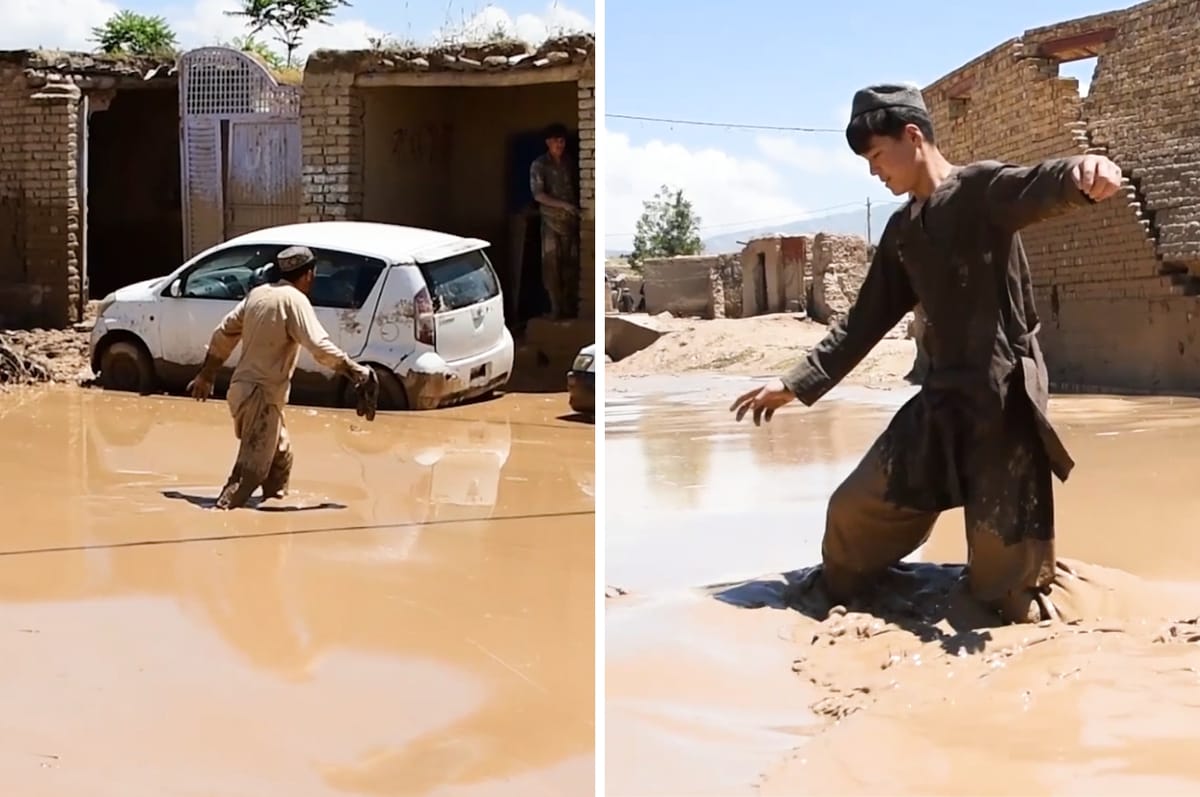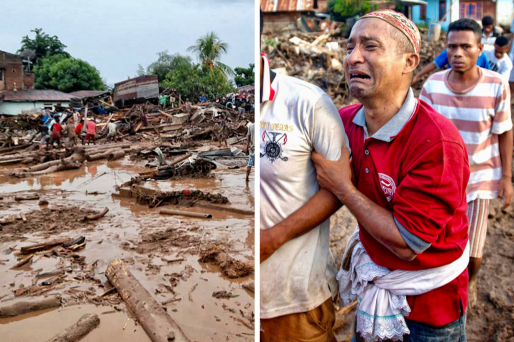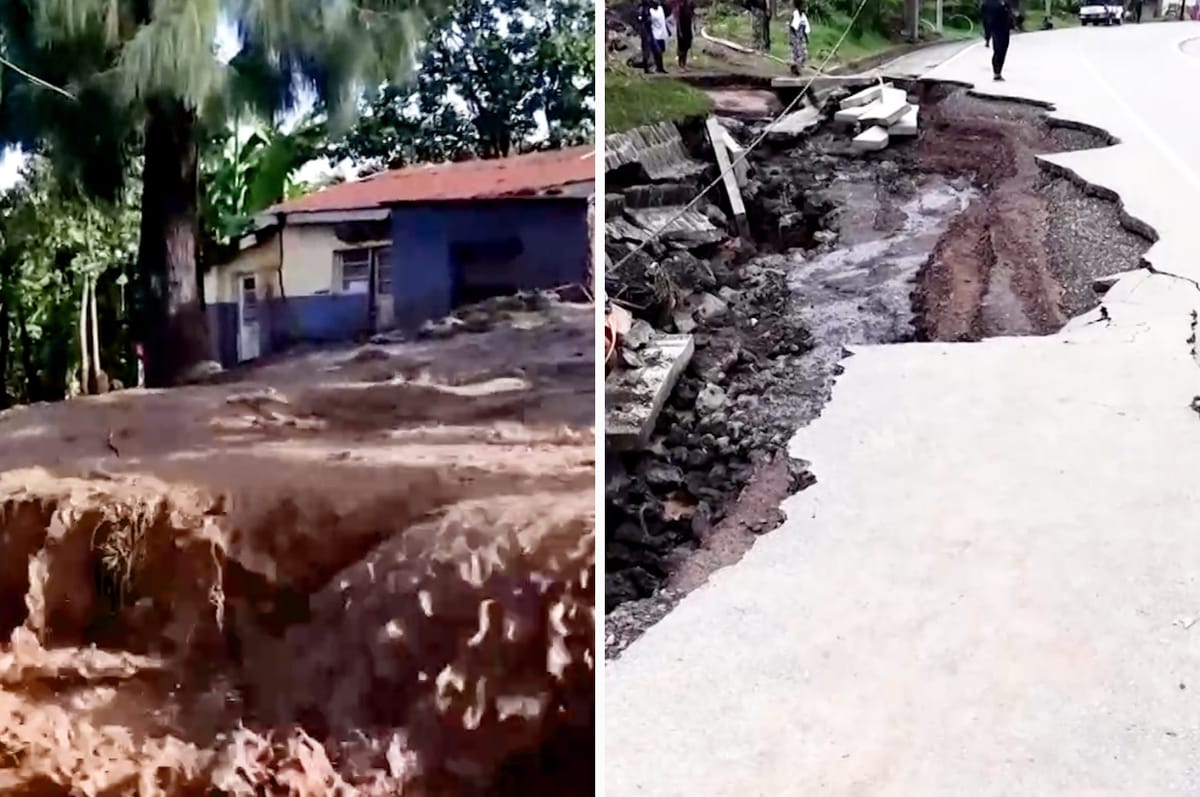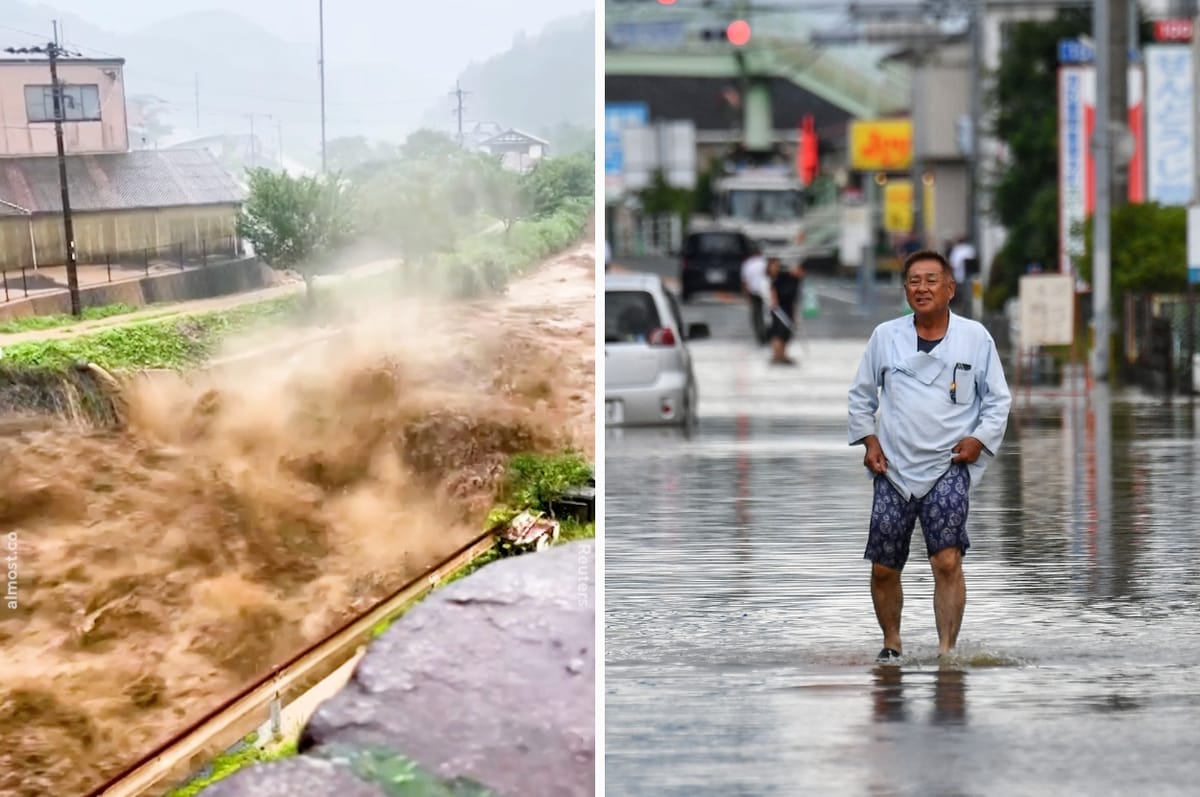More Than 300 People Have Been Killed In Afghanistan Due To Devastating Flash Floods
The disaster began on Friday, May 10, when heavy rains lashed Baghlan province, causing severe flooding and destroying thousands of dwellings.

Flash floods triggered by unusually heavy storms and torrential seasonal rains have wreaked havoc in at least 18 districts in northern Afghanistan, killing more than 300 people, including children, and leaving 1,600 others injured.
Videos making rounds on social media showed roaring rivers of mud sweeping away houses and leaving a trail of destruction behind.
The disaster began on Friday, May 10, when heavy rains lashed Baghlan province, causing severe flooding and destroying thousands of dwellings.
Over 1,500 houses were ravaged in the Baghlani Jadid district alone, and more than 100 people died, according to aid organizations.
In Nahrin district, people had limited access to food and water as floods ruined all the agricultural land and livestock.
Several other provinces in Afghanistan, including northern Takhar and Badakhshan, also witnessed flooding, with many people reported missing in the rivers formed by the heavy downpour.
The flash floods arrived as Afghanistan was still healing from a series of earthquakes that struck at the start of 2024, and from severe rainfall in March and April that killed more than 70 people.
Teams of rescue workers have been deployed to assist the injured and people trapped in debris-littered streets.
However, efforts to deliver aid were crippled by the destruction of roads and bridges.
Once the weather cleared on Saturday, May 11, the air force began its evacuation operations, rescuing more than 100 people and transporting them to nearby hospitals, the Taliban Defense Ministry said.
The Taliban called upon the United Nations, humanitarian organizations and private businesses to support those affected by the floods.
Several international humanitarian organizations have dispatched relief supplies, including medications and other essentials.
Afghanistan, experiencing a dry winter, struggles with soil absorption during rainfall, making it more vulnerable to climate change.
Devastated by decades of war, the country remains one of the poorest in the world, and, according to scientific studies, is unprepared to cope with the implications of global warming.
More On Climate Change








